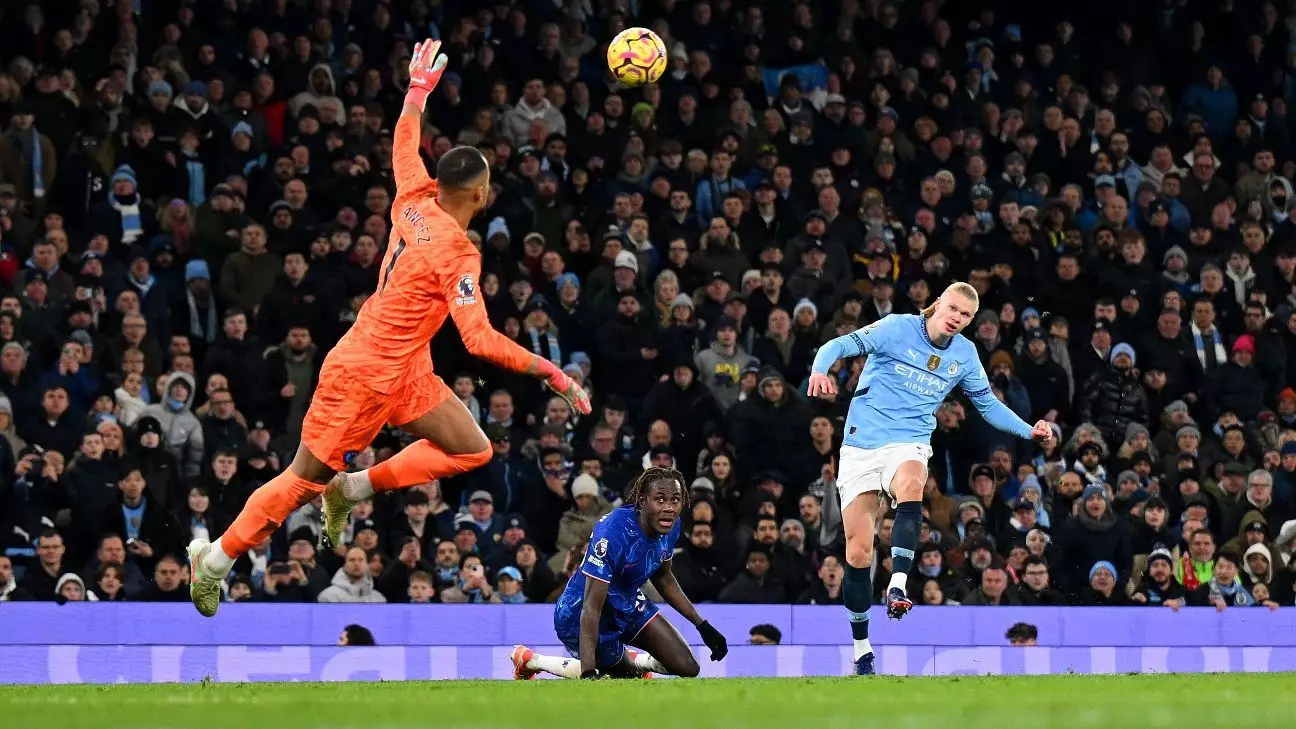Chelsea’s current season has not been devoid of controversy, particularly regarding their goalkeeper, Robert Sánchez. The latest defeat against Manchester City, where Chelsea fell 3-1, has intensified the scrutiny surrounding Sánchez’s performances. A pivotal moment in this match occurred when Sánchez, rather than exuding confidence, made a critical error that allowed Erling Haaland to score, putting City ahead. Such lapses in judgement repeatedly leave fans questioning the reliability of their goalkeeper, putting pressure on the entire Chelsea squad.
The inherent challenges Sánchez faces are compounded by his evident lack of consistency. Not only did he misplay the situation that led to Haaland’s goal, but this performance followed a similarly critical error against Wolves, where he failed to secure a cross, leading to an equalizer. These consecutive mistakes place him under a microscope, highlighting a worrying trend as Chelsea struggles to nail down a definitive starting goalkeeper.
The 27-year-old was originally brought into the club for over £20 million, yet his mistakes have sown doubt regarding his value. Fans and analysts alike are left pondering whether these moments of misjudgment stem from pressure or potential deficiencies in skill, making his upcoming performances vital for both his and the club’s future.
In the aftermath of the Manchester City game, Chelsea’s assistant manager Enzo Maresca voiced an unwavering trust in Sánchez. He articulated a belief in Sánchez’s ability to improve, suggesting that the goalkeeper is keenly aware of his errors. This rhetoric implies a certain level of confidence in Sánchez’s potential, which raises questions about the management’s approach in handling players who are experiencing a dip in form.
Maresca stated, “We trust Robert for sure but the first one that is completely aware he is making mistakes in this moment is Robert.” This acknowledgment of Sánchez’s shortcomings could signify a dual approach of supporting him while also emphasizing personal accountability. However, it leads to ambiguity: how long can a team afford to endorse an error-prone player before reassessment becomes necessary?
With the club now situated in sixth place, the prevailing logic suggests that Maresca may need to consider alternative options, especially since Chelsea has only secured one victory in their last seven matches. While the assistant manager insists that the team is showing signs of improvement, results are key, and the current trajectory may warrant an adjustment in strategy.
The alternative goalkeeper, Filip Jørgensen, has seen scant playing time, which could imply a lack of faith in his readiness to step into a starting role. Yet, it raises the issue of how many opportunities Sánchez should be afforded before Chelsea truly addresses the glaring vulnerabilities in their defense. As the season progresses, building a dependable backbone will be crucial for Chelsea, necessitating every decision regarding personnel to strike a balance between faith in potential and immediate needs.
Ultimately, Chelsea’s insistence on continuity with Sánchez reflects a commitment to developing players, but it could also risk further erosion of confidence among the squad and supporters if results do not improve. The next week presents a crucial opportunity for Sánchez to either solidify his standing or find Chelsea reaching toward other options as they strive for success amidst a tumultuous season.

